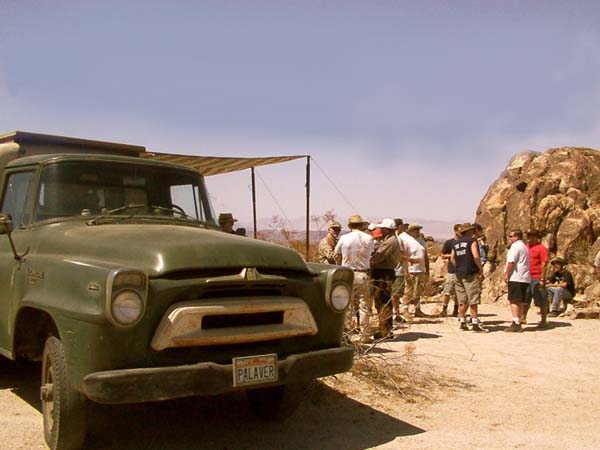Webster
- Palaver Pa*la"ver n. [Sp. palabra, or Pg. palavra, fr. L. parabola a comparison, a parable, LL., a word. See
Parable.]
- Talk; conversation.
- In Africa, a parley with the natives.
Edmund C. Jaeger
- Profuse and plausible talk
Ray E. Ryckman, in Sons of the Living Desert (p. 370):
From whence came the name "Palaver"? I submit the word "palaver" probably came to Edmund C. Jaeger from the works of John Muir. In Muir's biography, when describing the period 1875-1887, the author mentions, "Three days and nights they remained as his guests. Two palavers a day were held, all to packed houses." At the time of Dr. Jaeger's death, there were seven books by John Muir in his personal library. It is further submitted that John Muir had a very profound effect on the life of Edmund C. Jaeger.
"Palaver" is defined as a parley, conference or debate, usually of rather long duration among or with natives, one who talks profusely. In the case of the Jaeger Palavers, it is the coming together of 75-150 persons with like interest in biology, botany, and ecology in general and more specifically of those disciplines related to arid lands, deserts.
The palavers Muir referred to were conferences with the Thlinket Indians on the northwest coast of North America in October and early November of 1879. The word "palaver" was frequently used for conferences with the natives.
A "Jaeger Palaverite" refers to one who has attended the Jaeger Palavers and emotionally and intellectually subscribes to the conservation and natural history value systems held by the late Dr. Edmund C. Jaeger
|

